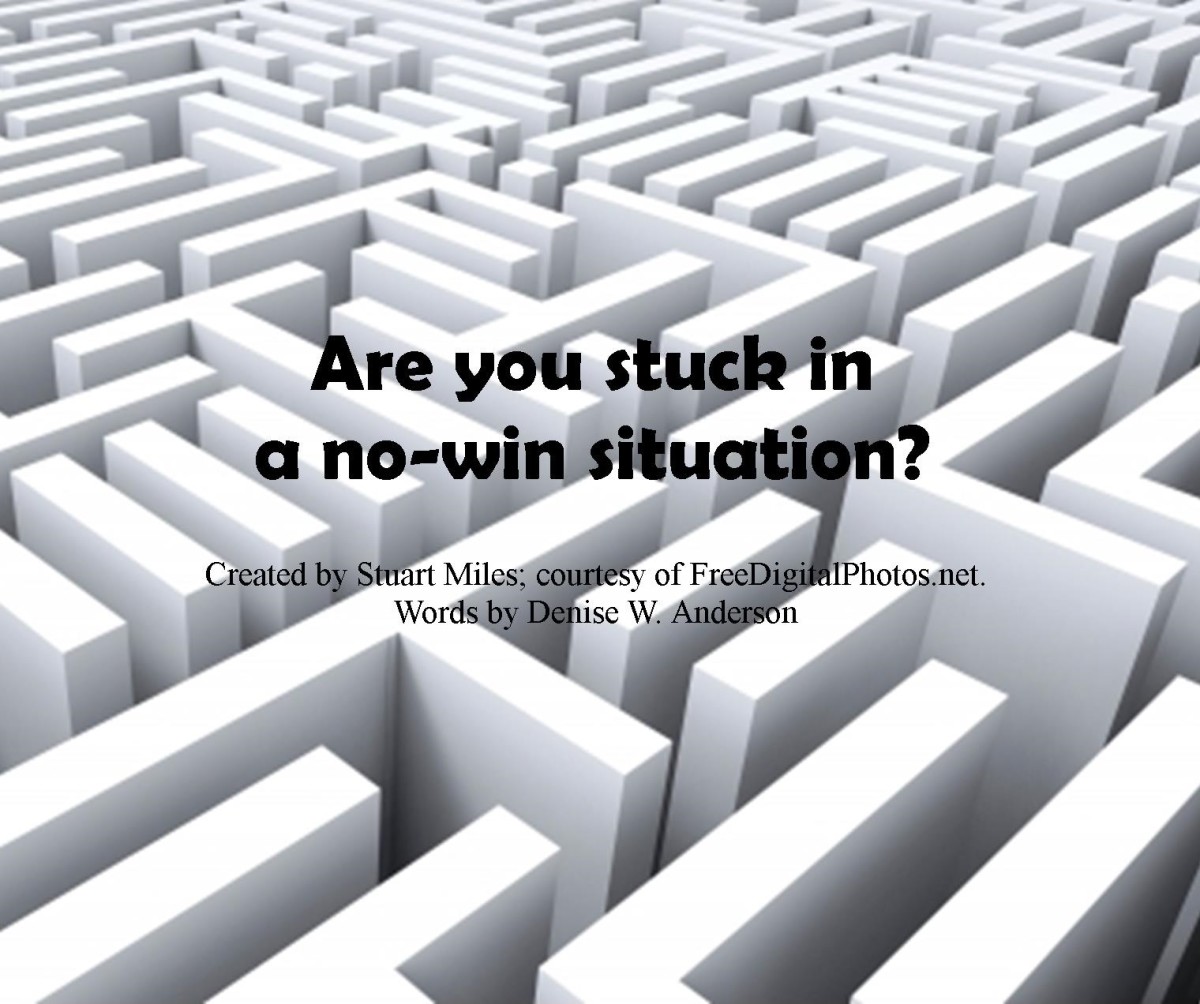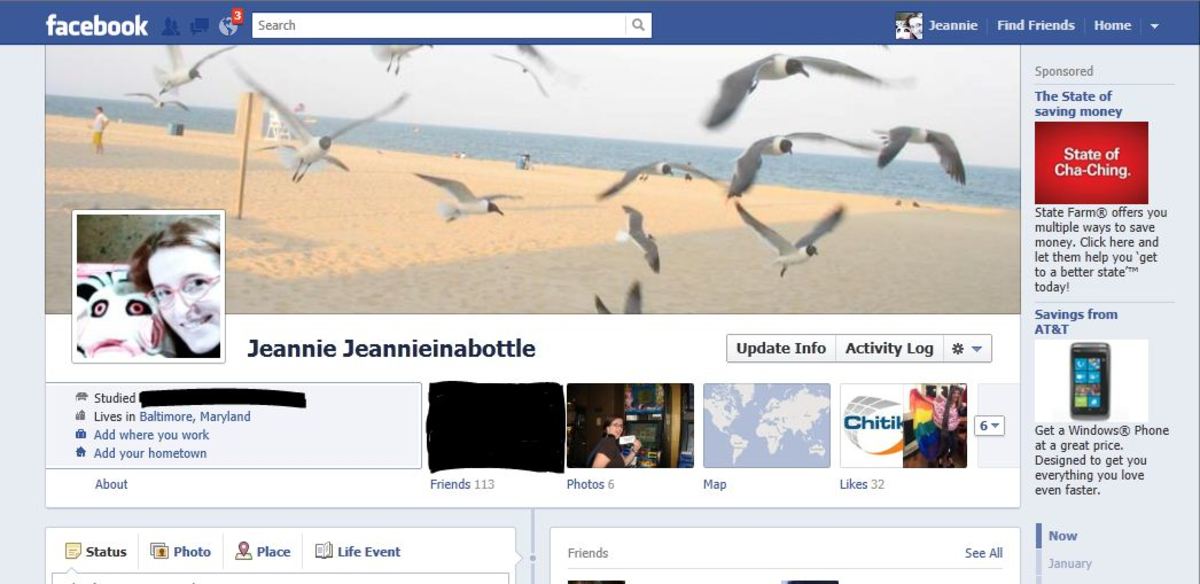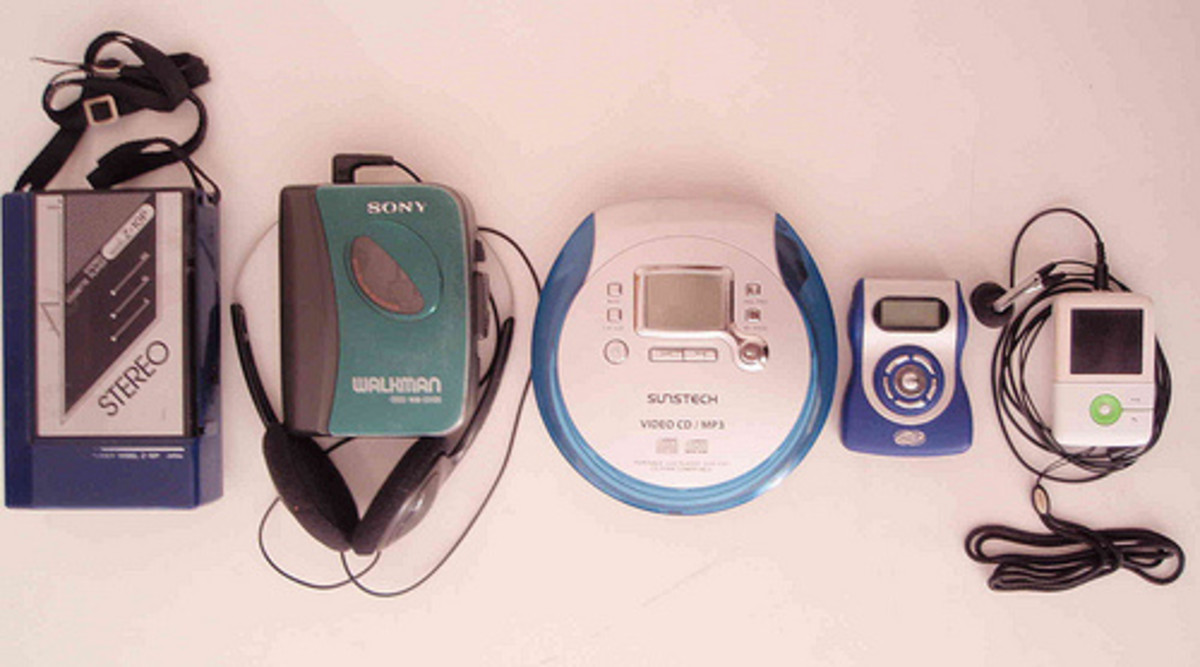The Truth Factor
The Truth Factor
When given the choice between knowing the truth and being faced with a lie, wouldn't you choose to know the truth about a matter? Most healthy, intelligent human beings would. Despite that fact, there are still those who knowingly, and willingly, choose to face a lie. Let me explain: say, for instance, your young child goes out with another group of kids and, while gone, chooses to do something he knows will get him into trouble. Would you rather someone come and tell you about it, or would you rather "just not know?" Another example: your husband leaves home on an extended trip, but when you call the hotel room number he gave you... there's never anyone around. Do you keep trying, wondering what's going on, or do you just trust your husband's word and blow it off as "nothing?" You'd be surprised at some people's answers!
Another situation that came to mind, was... what if a close friend/relative were with someone who you knew to be very abusive? What would you do? Would you try to talk to your friend/relative, detailing what you knew, or... would you simply think, "I really don't have proof, he seems to be nice to her" or any, other ideas that make it easier for you to "talk yourself out of?" What if the roles were reversed, and you were the friend/relative in the relationship? Would you be strong enough to hear what someone else had to say, or would you immediately come to the defense of the person in question? I've been both... the person approaching a friend AND the friend. Both are tough places to be in; however- for safety's sake- smart choices need to be made, and soon... rather than later!
The human mind tends to make decisions and choices it is comfortable with, ones that are pleasant for everyone involved. If that happens, it's a good thing. The thing, is... for ourselves, as well as everyone else involved, we must be true and open about how we think and how we feel... whether it's regarding other people, situations or life. True... often times, circumstances seem so dire or impossible to overcome, that we may desire to take the easy way out... telling part of a feeling, a situation or a truth. In the end, that only hurts... not helps, as we would like to believe it may.
Deep down, we have to trust that, all intelligent mankind wants to know the truth. We know, ourselves, it is surely something we NEED to know. We must not attempt to fool, or trick, ourselves into believing anything less than 100% honesty is ever called for, or warranted. If we expect, and desire, others to be honest and open with us, then we owe them the same in return. Also... if we have children, we surely do not want to model a path of dishonesty and manipulation for them. What will that teach? It shows them what kind of a person you want them to become, and we know that is not, at all, what we want for our children.
There are certainly situations where help, or mediation, needs to be sought well before the time comes when such a conversation might take place. For instance... say, you want to approach your friend that you know suffers from a certain type of mental illness. You would want to give careful thought to how you need to approach the subject with them, as well as exactly what you think needs to be said. The reason for this, is... some- not all- individuals who suffer mentally may become aggitated or upset at the mention of anything remotely stressful. They may become irrational or unnecessarily angered. Then, again, individuals who do not suffer from a mental illness could do any of these things. The thing is... you want to make sure you're going into a coversation/a situation that is beneficial, and positive, for everyone involved. In the end, it may just be best to talk briefly with their therapist/or psychologist and have them talk to the person. That way, they will be in a clinically safe environment and with someone who knows what to do, if things do get out of hand. Always err on the side of caution where these cases are concerned.
Another scenario may be, where the person is in a dangerous or unstable living situation. You certainly wouldn't want to make things worse for them or in any way jeopardize their living environment (physically, financially, etc.). Again... you may want to have a professional mediator, clinician, doctor, etc. sit in on the talk with you.
Let's now look at some ways in which we lie to ourselves about the truth of a matter. One situation I can think of goes something like this:
"My child did WHAT? Noooo! Not MY child!" When we immediately come to the defense of our child, without knowing anything about a situation, what does that show? Well... it shows our child that he/she can get away with just about anything and that mommy/daddy will believe them all the time. It also shows other people that, "I am not concerned about what MY child does wrong! Don't even bother telling me!" Think about it. Don't you want to know if, say, your child is doing something good at school or around the neighborhood? If so, then you also have to be mature enough to accept the "bad with the good." That's just life.
Another scenario might be... you're shopping at the mall and you're paying with a debit card. The last time you checked, you only had X amount of dollars in your account. You're standing at that counter, attempting to purchase a sweater, but you don't think you have enough to cover it. Instead of admitting that fact, putting the sweater back and walking out of the store, you make a feeble attempt, in your own mind, of saying, "Noooo... I'm sure I looked at the balance wrong. Maybe I do have enough," and trying to talk yourself out of what you already know the truth really is... that, you DON'T have enough money to cover the sweater. You want the sweater, you're afraid of looking "bad" in front of other people in the store, so you tell yourself what you want the truth to be... even though you know better!
A high school student, studying for an exam... instead of getting started studying earlier, he attempts to take short-cuts by reading less than he has to, by doing 1/2 the problems necessary or by "overlooking" a crucial paper he knows he needs to study.
What will be the outcome of these, three scenarios? What will be the positives that come out of them? There has to be something positive?! Believe it or not, there's nothing! Each one of these situations will only bring nervousness, anxiety, heartache and other, situationally-specific problems. The next time you are faced with such a dilemma, ask yourself, "If I do x, what will be the likely outcome? What if I choose to do y? Will the outcome likely be any better? How will I feel (about myself, about others) if I do x/y?" You get the idea. Then, once you have a clear picture about what choice you want to make... that's it. Don't second-guess, doubt or question your decision. Just, do it. Later on- after all is said and done- ask yourself how things turned out? Do you think they would have turned out the same, if you'd made another choice? At the end of the day, I ask myself one thing in regards to my choices... "Is this something I would be able to live with, and be happy about, if my higher power/my child/etc. were standing right beside me?" If I answer yes to that question, then- more than likely- I've got my answer!








